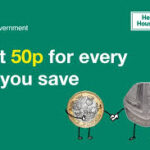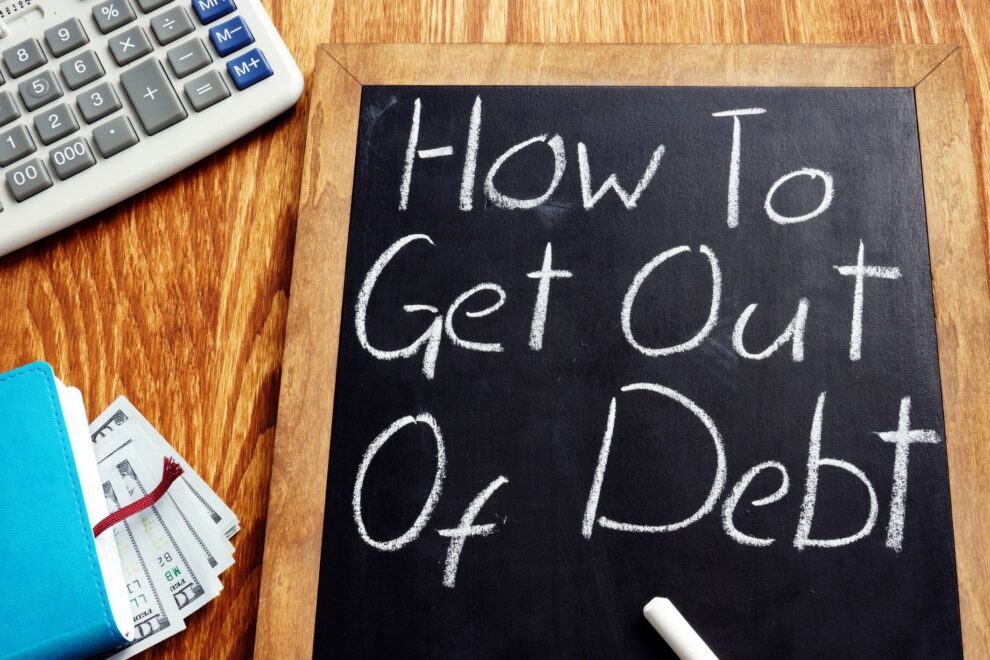Introduction
Are you feeling overwhelmed by debt and in need of learning how to get out of debt? You’re not alone. There is some positive news – you can take practical measures to break free from the cycle of debt and regain control over your financial situation.
Let us take you on a journey towards becoming debt-free with this in-depth guide. We’ll provide a step-by-step process to help you achieve your goal. From creating a solid plan to reducing expenses, increasing income, managing debts strategically, and implementing helpful tips, we’ll cover all the essential strategies to help you achieve financial freedom. Let’s dive in and embark on the journey to a debt-free life.
Assess Your Debt Situation
Before getting out of debt, assessing your current debt situation is crucial. Consider the following steps:
- Gather All Debt Information: Compile a list of all your debts, including credit cards, loans, student loans, and any other outstanding balances. Note the outstanding balances, interest rates, minimum monthly payments, and due dates. For example, if you have a credit card debt of £5,000 with an interest rate of 20% and a minimum monthly payment of £100, include this information in your list.
- Review Your Credit Reports: Obtain copies of your credit reports from major credit reporting agencies like Experian or Equifax. Please review them carefully to ensure all the information is accurate and up to date. Please identify any discrepancies or errors that require attention. This step is essential as inaccurate information can impact your credit score and ability to negotiate with creditors.
- Calculate Your Debt-to-Income Ratio: Calculating your debt-to-income ratio is easy. You must divide your total monthly debt payments by your monthly income. This will give you an idea of how much of your income is used to pay off debts. For instance, if you make £3,000 per month and your monthly debt payments are £800, your debt-to-income ratio would be 27%.
Create a Debt Repayment Plan
Now that you understand your debt situation creating a repayment plan is time. Consider the following steps:
- Prioritize Your Debts: Rank your debts based on their interest rates, from highest to lowest. Prioritize paying off high-interest debts first, as they cost you more in the long run. Make minimum payments on all debts while allocating extra funds towards the highest-interest debt. For example, if you have a credit card with a 20% interest rate and a personal loan with a 10% interest rate, focus on paying off the credit card debt first.
- Choose a Debt Repayment Strategy: Decide on a debt repayment strategy that suits your situation and personality. Two popular strategies are the Debt Snowball Method and the Debt Avalanche Method. When using the Debt Snowball Method, the first step is to pay off the smallest debt first, without considering the interest rate. This method can provide a psychological boost as one sees quick progress. In contrast, the Debt Avalanche Method focuses on paying off the debt with the highest interest rate first. This approach can save more money on interest in the long run. Choosing a strategy that aligns with your goals and motivates you to stay on track is important.
- Set Realistic Goals: Establish achievable goals for debt repayment. Break down your debt into smaller milestones and celebrate each as you progress. For example, if your total debt is £20,000, set milestones of £5,000 increments. It’s important to celebrate every time you pay off £5,000 towards becoming debt-free. This will keep you motivated and focused on achieving your goal; setting realistic targets can be helpful.
Reduce Expenses and Increase Income
Reducing expenses and increasing your income is essential to accelerate your debt repayment. Consider the following strategies:
- Create a Budget: Develop a comprehensive budget for all your income and expenses. Identify areas where you can cut back, such as discretionary spending, dining out, or entertainment. Allocate the savings towards debt repayment. One way to keep track of your finances is by creating a monthly budget. You can categorize groceries, transportation, utilities, and entertainment expenses. Reviewing the budget regularly is important to ensure you’re staying within your financial goals.
- Downsize and Simplify: Evaluate your lifestyle and consider downsizing where possible. Look for opportunities to save on housing, transportation, and other fixed expenses. For example, if you’re renting a large apartment, consider downsizing to a smaller one or exploring house-sharing options. Simplify your life and concentrate on what is truly important to avoid unnecessary expenses.
- Increase Your Income: Look for ways to boost your income. Consider taking on a side gig, freelancing, or monetizing your skills. Use the extra income to make larger debt payments and accelerate your progress. For example, you can offer freelance services in your area of expertise or explore online platforms for remote work opportunities. Use your skills and talents to generate additional income streams.
Manage Debts Strategically
As you work towards debt freedom, there are additional strategies to manage your debts effectively:
- Negotiate with Creditors: Consider contacting your creditors to discuss the potential of negotiating lower interest rates or exploring alternative repayment options. Creditors are often willing to work with you honestly if you communicate your situation. For example, if you need help to meet your monthly payments, contact your credit card company and inquire about the possibility of lowering your interest rate or setting up a repayment plan.
- Consider Debt Consolidation: Consolidating multiple high-interest debts into a single loan or balance transfer credit card with a lower interest rate can be smart. Simplifying your payments and reducing interest costs is possible if you explore loan options with lower rates than your current debts. Researching and comparing different options’s a good idea to find the most beneficial one for you. Once you find a suitable option, you can consolidate all your debts into a single loan with a fixed monthly payment. This way, you can manage your debts more efficiently and pay them off faster.
- Seek Professional Assistance: If you find it challenging to manage your debts independently, consider seeking professional assistance from credit counselling agencies or debt management programs. They can provide guidance, negotiate with creditors on your behalf, and help you develop a structured repayment plan. For example, contact a reputable credit counselling agency to schedule a consultation and explore their services.
Getting out of debt is an empowering journey that requires dedication, discipline, and determination. By assessing your debt situation, creating a repayment plan, reducing expenses, increasing income, and managing debts strategically, you can regain control of your financial life and achieve the desired freedom. Remember, progress may take time, but with perseverance and a solid plan, you can overcome debt and pave the way to a brighter financial future.









Add Comment